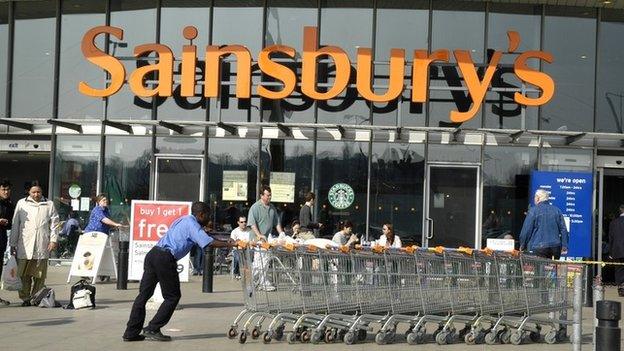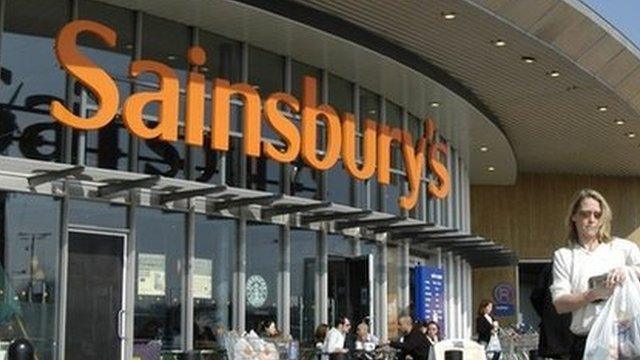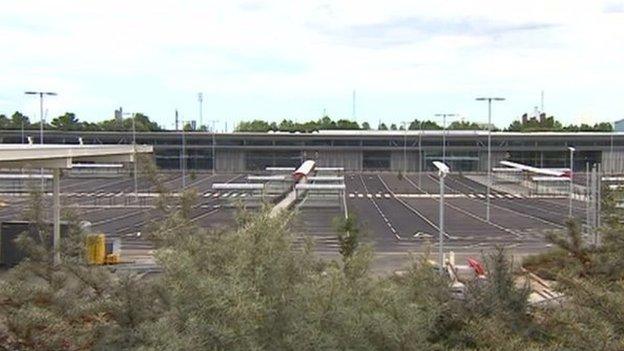Sainsbury's upgrades profit forecast
- Published

Shares in Sainsbury's have jumped after it said full-year profits were set to be better than expected.
Its shares rose 12% despite the company reporting, external its seventh consecutive quarter of falling underlying sales.
Life-for-like sales, which exclude the effect of new store space, fell 1.1% excluding sales of fuel. Total sales excluding fuel were up 0.3%.
Sainsbury's said it was making good progress despite "food inflation impacting many categories".
The supermarket group said it now expected full-year underlying profits to be "moderately ahead" of analysts' expectations of £548m. However, that is still well below last year's figure of £681m.
'Still challenging'
"Both volume and transactions grew as the decline in average basket spend in supermarkets continued to stabilise," said chief executive Mike Coupe.
"Whilst the market is clearly still challenging, with food deflation impacting many categories, we are making good progress on delivering our strategy."
Part of the strategy involves having fewer special offers and instead having lower regular prices.
The retailer cited particular progress on improving the taste and texture of its juice ranges and the ripeness and quality of its avocados.
Sainsbury's recently announced a 4% pay rise for its staff, which came into effect on 30 August.

Analysis: Kamal Ahmed, BBC business editor
Sainsbury's chief executive Mike Coupe might not exactly be cracking open the champagne this morning (even if it is on £14 special offer at his supermarket).
But the fact he has been bold enough to suggest that profits might be slightly ahead of expectations in this morning's interim results is significant - it's unusual for Sainsbury's to say anything about profits in a trading update.
The main reason is that although like-for-like sales (a measure of cash going through the tills) are still down, the decline is slowing and the actual volume of food being bought by each customer is up.
And fewer promotions mean there are fewer "demand surges" for products, making supply chain management (the boring but vital part of the business) more efficient and cheaper.
Half year results are in six weeks. Profits are likely to be down. But probably not by as much as initially feared.

In common with the rest of the big supermarket chains, Sainsbury's has been struggling with competition from the discount retailers such as Aldi and Lidl.
Analysts at Bernstein Research suggested that the big rise in the shares was due to the more upbeat tone in the statement.
"The results represent a change of tone for Sainsbury's," they said.
"It has tried to take a cautious message up to now, that it will go 'toe to toe' with whatever price investment anyone else makes."
"That it is talking up guidance is now showing they are more confident in their strategic position."
Sainsbury's also announced it had opened 27 convenience stores during the quarter and that clothing sales had been up nearly 13%.
- Published29 August 2015

- Published27 August 2015

- Published27 August 2015

- Attribution
- Published15 August 2015

- Published12 August 2015
